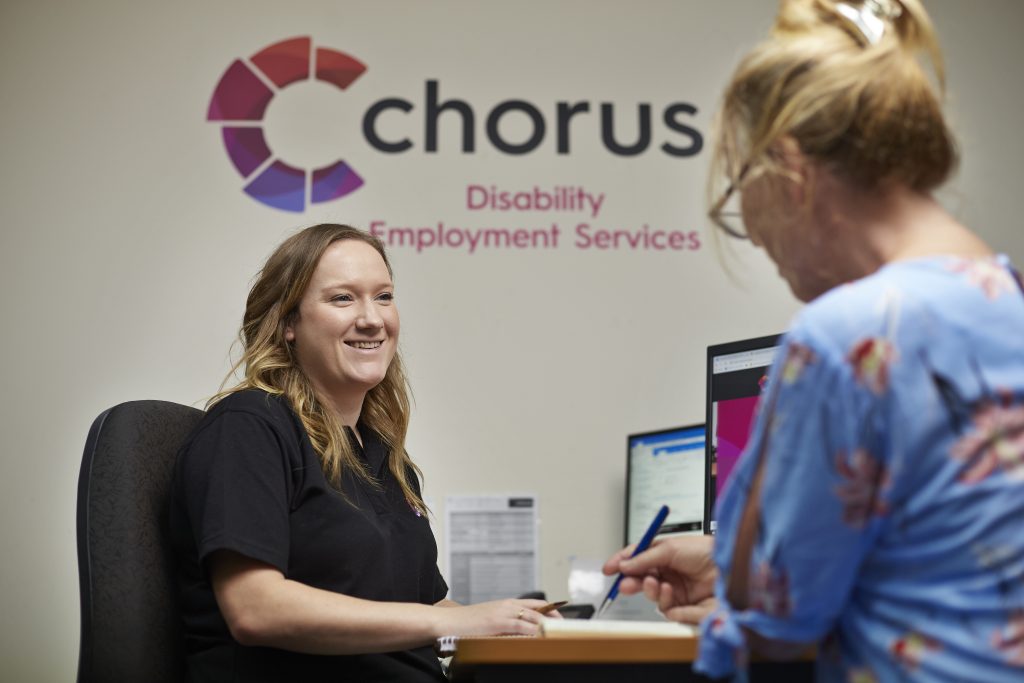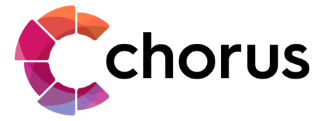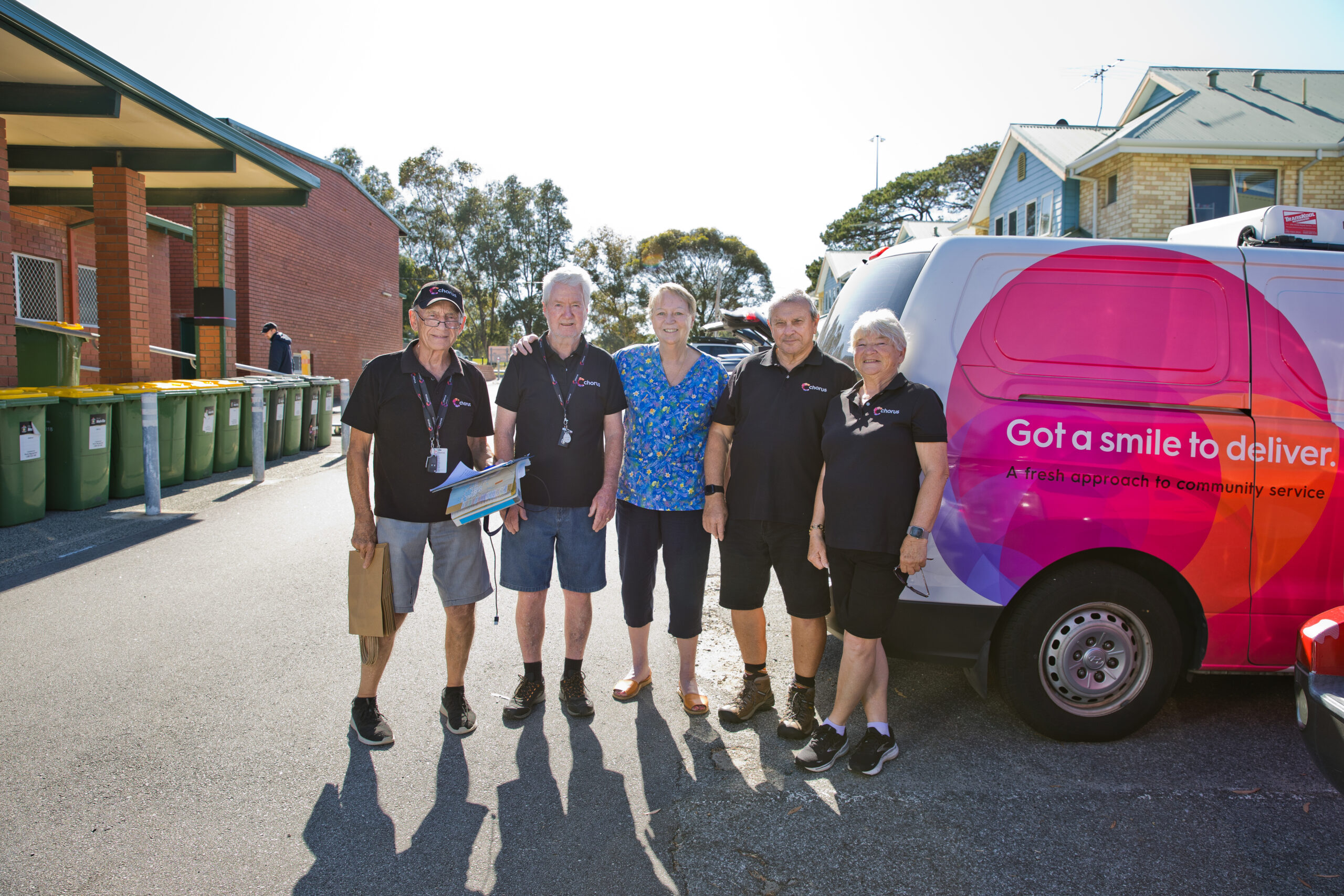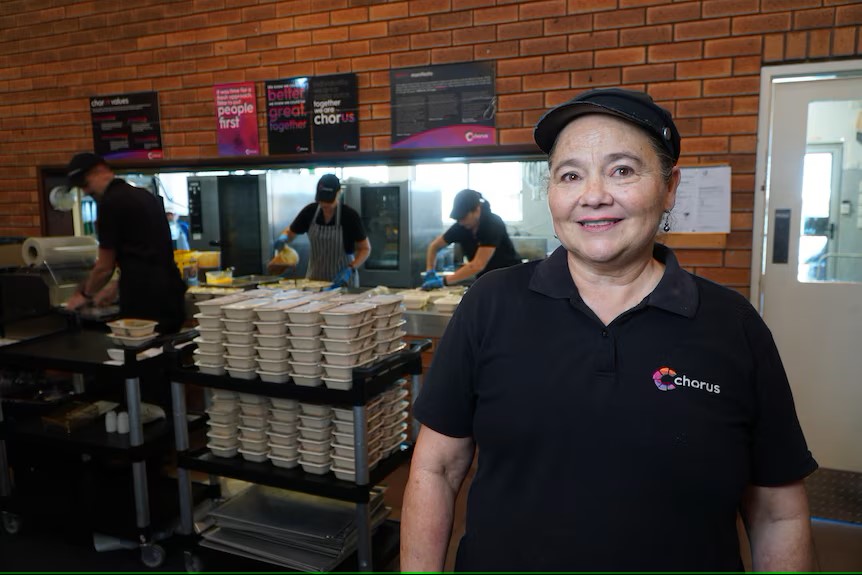Often people living with disability, and those who have been out of work for a period of time due to illness, find it hard to get a job.
They can experience prejudice surrounding assumptions about their capabilities, or because there’s a gap on their resume.
Yet research shows giving a job to someone living with disability doesn’t just benefit the individual; the employer can reap a number of fantastic benefits, too. Fewer sick days and injury claims, better customer relations and a boost in morale due to a diversified workplace are just some of the proven benefits.[1]
Claire Marsh, an Employment Services Specialist at Chorus, says that when employers are exposed to the opportunity of hiring someone living with disability (or someone re-entering the workforce after illness) and are educated about what that means for them, they are more able to help them find work.
Helping employers see the possibilities
Organisations like Chorus not only work directly with jobseekers but, importantly, also do valuable awareness raising work with industries about the types of potential employees available. Claire said it was crucial to raise awareness about disability employment services both with the public and at events like exhibitions and jobs fairs.

“The biggest challenge is lack of understanding,” Claire said. “In our communication to employers we find giving them scenarios is the best way to tell the story.
For example, a cervical cancer survivor may have had an operation and now has a gap on her resume. In a place with low-skill jobs there are thousands of applicants. We help the potential employers see the person and understand the situation.”
Here are some points for employers to consider:
- Be open minded. Often it does not cost large amounts of money for workplace modifications or staff training, it just requires taking a common-sense approach
- Be willing to do work trials
- Don’t be scared of injury. In many situations, a person is fully recovered or has reskilled into a profession that does not require tasks that exacerbate conditions
- Realise the positive impact on your workforce of employing someone living with disability or someone who has major barriers to employment
- Staff employed through a Disability Employment Services (DES) provider tend to be reliable and flexible, with good work ethics. They have faced significant challenges to get to employment and that motivates them to be quality employees
- Support is always available. If a staff member is struggling, help is available from DES providers, like Chorus.
Employing someone living with disability
Disability Employment Service providers like Chorus help businesses to employ people living with disability. They build links between jobseekers and employers and are focused on creating sustainable employment outcomes.
They work with employers to meet their labour needs, including:
- Working with individual employers to identify job vacancies
- Matching suitable candidates to those vacancies while sustaining quality outcomes for people with disability
- Meeting (and adapting to) the employer’s needs and the needs of people with disability
- Financial support such as workplace modifications; assistive technology; disability, deaf and mental health awareness training; Auslan interpreting; and wage subsidies.
Here are some useful links from various Australian Government departments:
- business.gov.au – Disability support
- Job Access – Benefits of employing people with disability
- FACT SHEET – An Employer’s Guide to Employing Someone with Disability.
How disability employment services work for jobseekers
Disability Employment Services providers like Chorus perform an initial assessment and work with customers (those living with disability) closely to address skills gaps and see where they need training to build them back up to independently find work. 
“Gaps in a resume make it hard to find work; we speak to employers about why that might be. We also discuss government wage subsidies on offer,” Claire said.
The next step is getting employers in the same room as applicants, which Claire said helps break down barriers.
“Employers can be hesitant because it’s an unknown for them,” she said. “Being exposed to the types of customers we have opens doors as, often, there are pre-conceived ideas around things like mental health.”
While some employers embrace the opportunity because of personal experience, Claire encouraged others to be open to the possibility.



